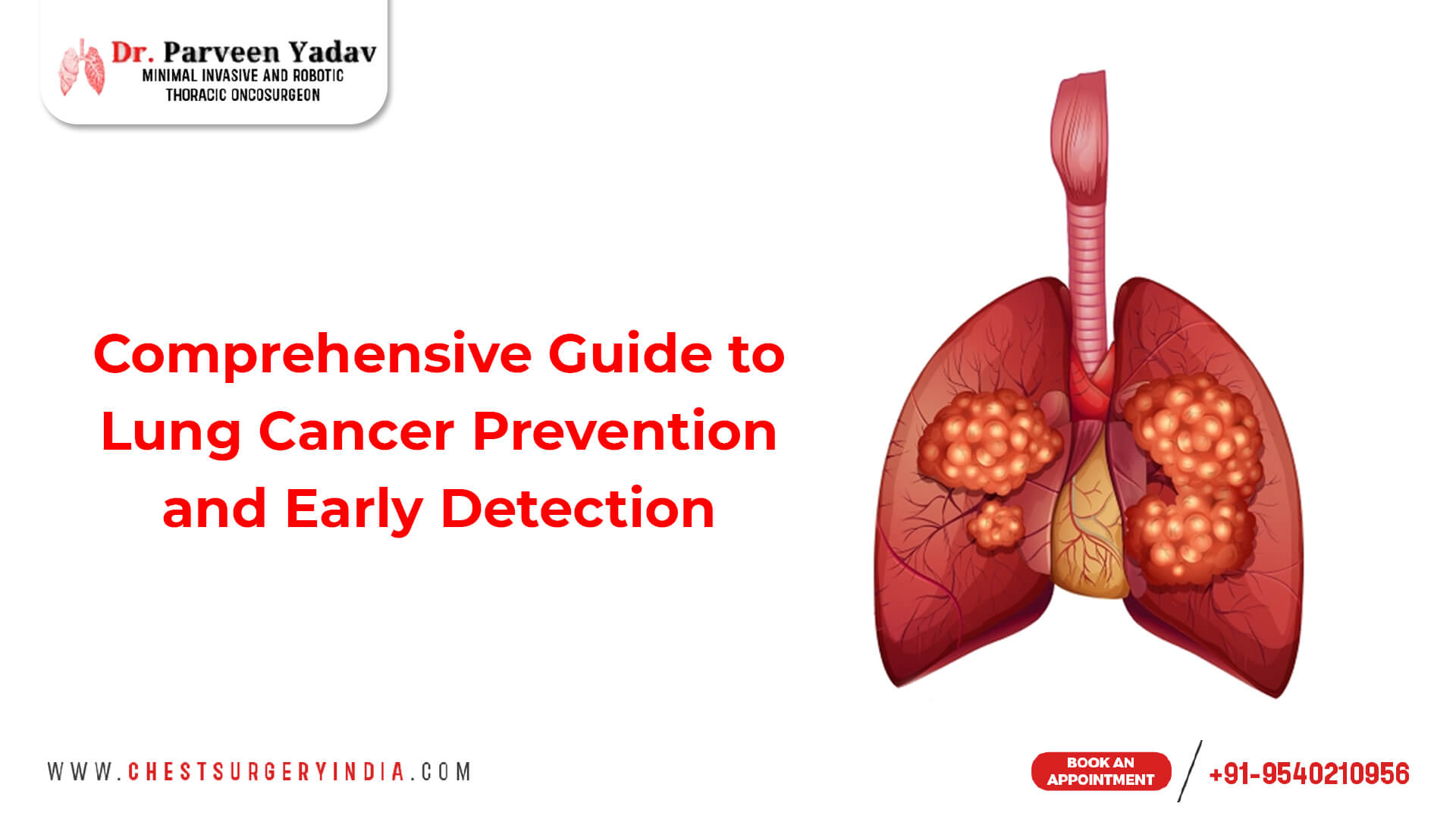

Lung cancer is one of the most prevalent and deadly forms of cancer worldwide. However, the good news is that many cases of lung cancer can be prevented, and early detection can significantly improve the chances of successful treatment. In this comprehensive guide, we will explore various strategies for lung cancer prevention and the importance of early detection in saving lives.
Knowing the risk factors associated with lung cancer is the first step in prevention. Some common risk factors include:
Smoking: Tobacco smoking is the leading cause of lung cancer, responsible for nearly 85% of cases.
Secondhand smoke: Regular exposure to secondhand smoke can also increase the risk of lung cancer.
Radon gas: Radon is a radioactive gas that can seep into homes and increase lung cancer risk.
Occupational exposure: Certain workplaces, such as construction sites or industrial facilities, may expose individuals to carcinogenic substances.
Family history: A family history of lung cancer can increase the likelihood of developing the disease
Quit Smoking: If you smoke, quitting is the most effective way to reduce your lung cancer risk. Seek support from friends, family, or professional cessation programs to help you quit. The benefits of quitting are significant and can improve your overall health as well.
Avoid Secondhand Smoke: Limit your exposure to secondhand smoke by avoiding areas where smoking is allowed and encouraging your family and friends to do the same.
Test for Radon: Test your home for radon gas regularly. If elevated levels are detected, take steps to reduce exposure, such as sealing cracks and improving ventilation.
Be Mindful of Occupational Hazards: If your work involves exposure to carcinogenic substances, ensure you follow safety guidelines, wear protective gear, and undergo regular health screenings.
Maintain a Healthy Lifestyle: A healthy lifestyle can play a crucial role in reducing cancer risk. Eat a balanced diet rich in fruits and vegetables, exercise regularly, and avoid excessive alcohol consumption.
Also Read: Lung Cancer In Men: Everything You Need To Know
Know the Early Signs and Symptoms:
Being aware of the early signs and symptoms of lung cancer can lead to early detection. Common symptoms may include:
If you are at a higher risk of developing lung cancer due to smoking or other risk factors, talk to your healthcare provider about lung cancer screening. Low-dose CT scans can detect lung cancer at an early stage when treatment is more effective.
Stay Informed: Keep yourself updated with the latest research and information on lung cancer prevention and early detection. Public health organizations often provide valuable resources and educational materials.
Lung cancer prevention and early detection are essential for reducing the impact of this devastating disease. By understanding the risk factors, making lifestyle changes, and being vigilant about early signs, we can make significant strides in reducing lung cancer cases and improving survival rates. Take proactive steps to protect your lung health and spread awareness within your community to create a healthier future for all.

18+ Yrs Exp | 5,700+ Thoracic & Robotic Cancer Surgeries
Dr. Parveen Yadav is a Director and Senior Consultant in Thoracic and Surgical Oncology, specializing in minimally invasive and robotic lung and esophageal surgeries, with advanced training from AIIMS and Tata Memorial Hospital.
View Full ProfileDiscover how diet, breathing exercises & daily habits help prevent and recover from thoracic cancer. Expert insights from Dr. Parveen Yadav, Chest Surgery India
Discover how Da Vinci robotic surgery is transforming chest procedures in Gurgaon. Less pain, faster recovery & expert care by a certified thoracic surgeon
Just diagnosed with thoracic cancer? Learn critical first steps, biomarker testing, and what to do in the first 2 weeks from expert Dr Parveen Yadav.
Copyright 2026 © Dr .Parveen Yadav all rights reserved.
Proudly Scaled by Public Media Solution!